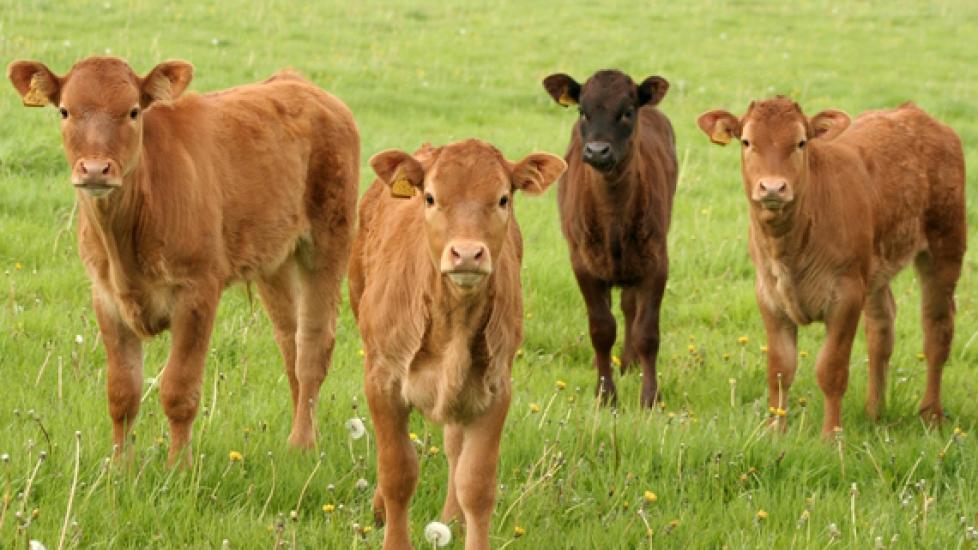Cows Have Distinct Social Classes and 'Boss Cows'
For most pet owners, it is obvious that cats and dogs all have unique personalities and social quirks; that’s part of what makes them so endearing to have as companions. Perhaps most people realize that horses, although considered large animals, have their own personalities as well. But what about the quintessential livestock animal, the cow? Do these herd-oriented animals actually have personalities? Do they make friends? Do they hold grudges? As it turns out, the answer to all these questions is yes.
Over the past few decades, research into the behavior of cattle, especially dairy cattle, has shown these animals have a surprisingly complex social life. This, of course, is no news to the dairy farmer, who, through years of closely working with these animals day after day, knows which are the calm ones, which are the skittish ones, which get lonely, which are crafty, and which are just plain mean. And if you’re on good terms with these dairy farmers, they’ll usually let you know as you’re walking into the barn for an appointment which cow you’re getting ready to work on and if you’re going to have a good day or a bad day because of her.
At the risk of sounding cynical, most of this research stems from devising ways to save money in the milking parlor. If cows are stressed, their milk production is affected, so can social change stress cows? Studies say yes. Once in a herd, cows develop a social hierarchy. There are even what are called “boss cows” at the apex of this social ladder. These are the cows that push their way through to the feed bunk no matter who is in their way and, sorry ladies, no one is getting seconds until these queens of the corral have had their fill.
As you might imagine, it takes time for the intricacies of the social ladder to be worked out within a herd. If cows are moved from one barn to another frequently, this social stress can start to affect their well-being. Reestablishing who’s who in a crowd can lead to tension, stress, and the release of cortisol, the stress hormone that’s been shown to have detrimental effects on milk production.
If cows are allowed to choose where they rest in a free-stall barn (a common type of dairy barn that has many different stalls where the cows themselves choose where to rest), they will choose to rest near acquaintances, not strangers. Boss cows will often rest near other boss cows, with the mid-level and bottom-level animals more commonly associating with others of their “class.”
One study identified three different social structures within a dairy herd: a milking order, a leadership-followership pattern, and a dominance hierarchy, suggesting that the social dynamic isn’t just a social ladder, but rather a more complicated web. Social dynamics affect the order cows enter the milking parlor twice a day, who follows who in the field and around the barn, and who gets pushed out of the way when push comes to shove.
An interesting side note, in case you were wondering, is that studies have shown that social dominance does not appear to influence milk production. A boss cow is just as likely to produce the same amount of milk as a lower-ranked cow in the herd. Instead, milk production is influenced much more by breed genetics (milk production of the parents, grandparents, etc.), health, type of diet, and overall farm management.
So next time you happen to drive by a pastoral scene of green grass and happily grazing Holsteins, you might stop to consider the fact that all things may not be as peaceful as they seem. My conclusion from these studies is that dairy cows are prone to gossip.

Dr. Anna O’Brien
Image: verityjohnson / Shutterstock
